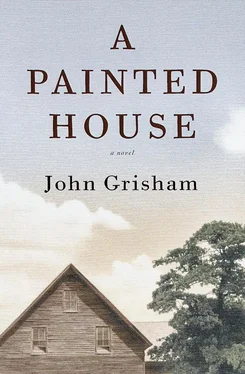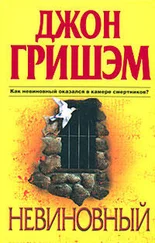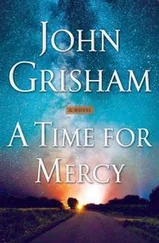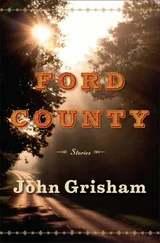“Where’d you get that?” I asked. A dumb question, to which he offered no answer.
“Do it again,” I said.
In a flash, he pressed the blade against his leg, folding it back into the handle, then waved it near my face as he snapped the blade out again.
“Can I do it?” I asked.
No, he shook his head firmly.
“You ever stuck anybody with it?”
He drew it closer to himself and gave me a nasty look. “Many men,” he said.
I’d seen enough. I backed away, then trotted past the silo, where I could be alone. I threw pop flies to myself for an hour, hoping desperately that Tally would happen by on her way to the creek again.
We gathered in silence at the tractor early Monday morning. I wanted so badly to sneak back into the house and into Ricky’s bed and sleep for days. No cotton, no Hank Spruill, nothing to make life unpleasant. “We can rest in the winter,” Gran was fond of saying, and it was true. Once the cotton was picked and the fields plowed under, our little farm hibernated through the cold months.
But in the middle of September, cold weather was a distant dream. Pappy and Mr. Spruill and Miguel huddled near the tractor and spoke earnestly while the rest of us tried to listen. The Mexicans were waiting in a group not far away. A plan was devised whereby they would start with the cotton near the barn, so they could simply walk to the fields. We Arkansans would work a little farther away, and the cotton trailer would act as a dividing line between the two groups. Distance was needed between Hank and Cowboy, otherwise there would be another killing.
“I don’t want any more trouble,” I heard Pappy say. Everyone knew the switchblade would never leave Cowboy’s pocket, and we doubted that Hank, dumb as he was, would be stupid enough to attack him again. Over breakfast that morning Pappy had ventured the guess that Cowboy wasn’t the only armed Mexican. One reckless move by Hank, and there might be switchblades flying everywhere. This had been shared with Mr. Spruill, who had assured Pappy that there would be no more trouble. But by then no one believed that Mr. Spruill, or anybody else, could control Hank.
It had rained late last night, but there was no trace of it in the fields; the cotton was dry, the soil almost dusty. But the rain had been seen by Pappy and my father as an ominous warning of the inevitable flooding, and there was an anxiousness about the two that was contagious.
Our crops were nearly perfect, and we had just a few more weeks to gather them before the skies opened. When the tractor stopped near the cotton trailer, we quickly grabbed our sacks and disappeared among the stalks. There was no laughing or singing from the Spruills, not a sound from the Mexicans in the distance. And no napping on my part. I picked as fast as I could.
The sun rose quickly and cooked the dew from the bolls of cotton. The thick air clung to my skin and soaked my overalls, and sweat dripped from my chin. One slight advantage in being so small was that most of the stalks were taller than me; I was partially shaded.
Two days of heavy picking, and the cotton trailer was full. Pappy took it to town; always Pappy, never my father. Like my mother and the garden, it was one of those chores that had been designated long before I came along. I was expected to ride with him, something I always enjoyed because it meant a trip to town, if only to the gin.
After a quick dinner, we took the truck to the field and hitched up the cotton trailer. Then we climbed along its edges and secured the tarp so that no bolls would blow away. It seemed a crime to waste a single ounce of something we’d worked so hard to gather.
As we drove back to the house, I saw the Mexicans behind the barn, grouped tightly, slowly eating their tortillas. My father was at the toolshed, patching an inner tube for a front tire on the John Deere. The women were washing dishes. Pappy abruptly stopped the truck. “Stay here,” he said to me. “I’ll be right back.” He’d forgotten something.
When he returned from the house, he was carrying his twelve-gauge shotgun, which he slid under the seat without a word.
“We goin’ huntin’?” I asked, knowing full well that I would not get an answer.
The Sisco affair had not been discussed over dinner or on the front porch. I think the adults had agreed to leave the subject alone, at least in my presence. But the shotgun suggested an abundance of possibilities.
I immediately thought of a gunfight, Gene Autry style, at the gin. The good guys, the farmers, of course, on one side, blasting away while ducking behind and between their cotton trailers; the bad guys, the Siscos and their friends, on the other side returning fire. Freshly picked cotton flying through the air as the trailers took one hit after another. Windows crashing. Trucks exploding. By the time we crossed the river, there were casualties all over the gin lot.
“You gonna shoot somebody?” I asked, in an effort to force Pappy to say something.
“Tend to your own business,” he said gruffly as he shifted gears.
Perhaps he had a score to settle with some offending soul. This brought to mind one of the favorite Chandler stories. When Pappy was much younger, he, like all farmers, worked the fields with a team of mules. This was long before tractors, and all farming was done by man and animal. A ne’er-do-well neighbor named Woolbright saw Pappy in the fields one day, and evidently Pappy was having a bad day with the mules. According to Woolbright, Pappy was beating the poor beasts about their heads with a large stick. As Woolbright later told the story at the Tea Shoppe, he’d said, “If I’d had a wet burlap sack, I’d’ve taught Eli Chandler a thing or two.” Word filtered back, and Pappy heard what Woolbright said. A few days later, after a long hot day in the fields, Pappy took a burlap sack, put it in a bucket of water, and skipping dinner, walked three miles to Woolbright’s house. Or five miles or ten miles, depending on who happened to be telling the story.
Once there, he called on Woolbright to come out and settle things. Woolbright was just finishing dinner, and he may or may not have had a houseful of kids. Anyway, Woolbright walked to the screen door, looked out into his front yard, and decided things were safer inside.
Pappy yelled at him repeatedly to come on out. “Here’s your burlap sack, Woolbright!” he yelled. “Now come on out and finish the job.”
Woolbright retreated deeper into his house, and when it was evident he wasn’t coming out, Pappy threw the wet burlap sack through the screen door. Then he walked three or five or ten miles back home and went to bed, without dinner.
I’d heard the story enough to believe it was true. Even my mother believed it. Eli Chandler had been a hot-tempered brawler in his younger days, and at the age of sixty he still had a short fuse.
But he wouldn’t kill anybody, unless it was in self-defense. And he preferred to use his fists or less menacing weapons like burlap sacks. The gun was traveling with us just in case. The Siscos were crazy people.
The gin was roaring when we arrived. A long line of trailers waited ahead of us, and I knew we’d be there for hours. It was dark when Pappy turned off the engine and tapped his fingers on the wheel. The Cardinals were playing, and I was anxious to get home.
Before getting out of the truck, Pappy surveyed the trailers and the trucks and tractors, and he watched the farmhands and gin workers go about their business. He was looking for trouble, and seeing none, he finally said, “I’ll go check in. You wait here.”
I watched him shuffle across the gravel and stop at a group of men outside the office. He stayed there awhile, talking and listening. Another group was congregated near a trailer in the line ahead of us, young men smoking and talking and waiting. Though the gin was the center of activity, things moved slowly.
Читать дальше












